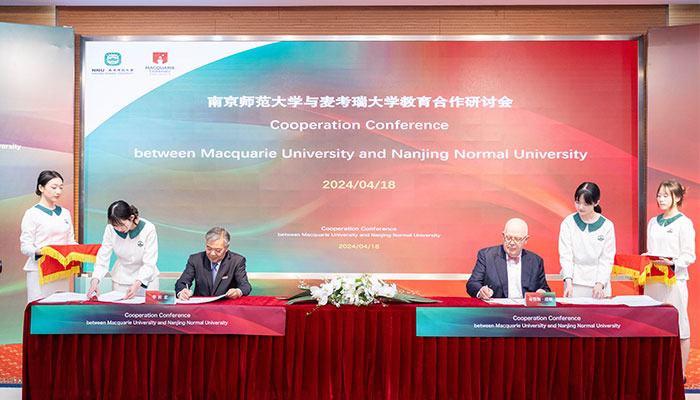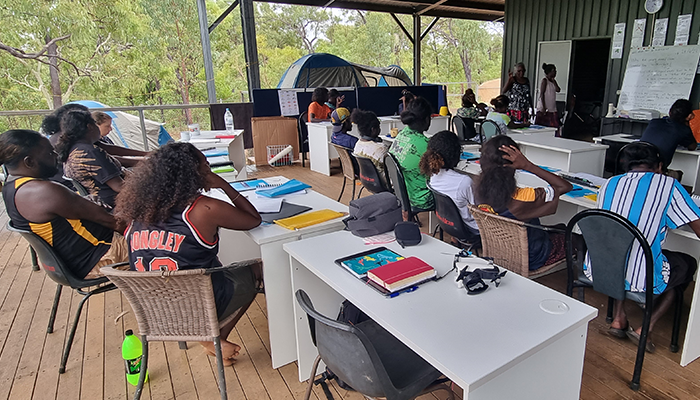Backed by $1million in funding from the NSW Government, Macquarie University will today be announced as the lead Australian institution in the Yeast 2.0 project, tasked with creating the world’s first-ever synthetic complex organism. Macquarie will be partnered by the Australian Wine Research Institute, based in Adelaide.
“A wholly synthetic yeast organism will be an amazing accomplishment, but it is just the beginning,” says Deputy Vice-Chancellor of Research at Macquarie University, Professor Sakkie Pretorius. “This is history in the making as all previous ground-rules for research in biology are being rewritten.
“Once we can synthesise an organism like yeast we can then apply the same techniques to increasingly more complex organisms. The possibilities in medicine, or the environment, for example, are truly mind-blowing.”
Global research leader of the project, Professor Jef Boeke of New York University published the synthesis of Chromosome III of a lab strain of the yeast Saccharomyces cerevisiae in prestigious international journal Science last month. It is the first ever synthetic chromosome of any living organism more complex than simple bacteria.
The worldwide team involved with Yeast 2.0 has to synthesise the other 15 chromosomes to generate the first fully synthetic yeast by 2017. Macquarie University, in partnership with the Australian Wine Research Institute, is responsible for synthesising Chromosome XIV.
Managing Director of AWRI, Dr Dan Johnson says “Yeast 2.0 will bring enormous gains in understanding how yeast work, with benefits for a wide range of industries, including wine production.”
The NSW Department of Primary Industries and the NSW Office for Science & Research, through its Research Attraction and Acceleration Program (RAAP), will each contribute $500,000 in funding to the Yeast 2.0 project.
NSW Chief Scientist and Engineer, Professor Mary O’Kane, says having the project based in NSW is a real coup.
“It is a real credit to Australia’s research expertise but particularly our excellent scientists located right here in NSW that we can play such a pivotal role in a ground-breaking international scientific project like Yeast 2.0,” Professor O’Kane said.
“New South Wales and Australia stand to benefit significantly from this worldwide collaboration and I am incredibly pleased to support it.”
NSW Department of Primary Industry (DPI) Chief Scientific Officer, Dr Philip Wright, says the project will result in long-term benefits for primary producers.
“This is ground breaking research, DPI is delighted to be involved in this project which will have significant benefits to primary producers in the future,” Dr Wright says.
“A wholly synthetic yeast organism will be an amazing accomplishment, but it is just the beginning,” says Deputy Vice-Chancellor of Research at Macquarie University, Professor Sakkie Pretorius. “This is history in the making as all previous ground-rules for research in biology are being rewritten.
“Once we can synthesise an organism like yeast we can then apply the same techniques to increasingly more complex organisms. The possibilities in medicine, or the environment, for example, are truly mind-blowing.”
Global research leader of the project, Professor Jef Boeke of New York University published the synthesis of Chromosome III of a lab strain of the yeast Saccharomyces cerevisiae in prestigious international journal Science last month. It is the first ever synthetic chromosome of any living organism more complex than simple bacteria.
The worldwide team involved with Yeast 2.0 has to synthesise the other 15 chromosomes to generate the first fully synthetic yeast by 2017. Macquarie University, in partnership with the Australian Wine Research Institute, is responsible for synthesising Chromosome XIV.
Managing Director of AWRI, Dr Dan Johnson says “Yeast 2.0 will bring enormous gains in understanding how yeast work, with benefits for a wide range of industries, including wine production.”
The NSW Department of Primary Industries and the NSW Office for Science & Research, through its Research Attraction and Acceleration Program (RAAP), will each contribute $500,000 in funding to the Yeast 2.0 project.
NSW Chief Scientist and Engineer, Professor Mary O’Kane, says having the project based in NSW is a real coup.
“It is a real credit to Australia’s research expertise but particularly our excellent scientists located right here in NSW that we can play such a pivotal role in a ground-breaking international scientific project like Yeast 2.0,” Professor O’Kane said.
“New South Wales and Australia stand to benefit significantly from this worldwide collaboration and I am incredibly pleased to support it.”
NSW Department of Primary Industry (DPI) Chief Scientific Officer, Dr Philip Wright, says the project will result in long-term benefits for primary producers.
“This is ground breaking research, DPI is delighted to be involved in this project which will have significant benefits to primary producers in the future,” Dr Wright says.



